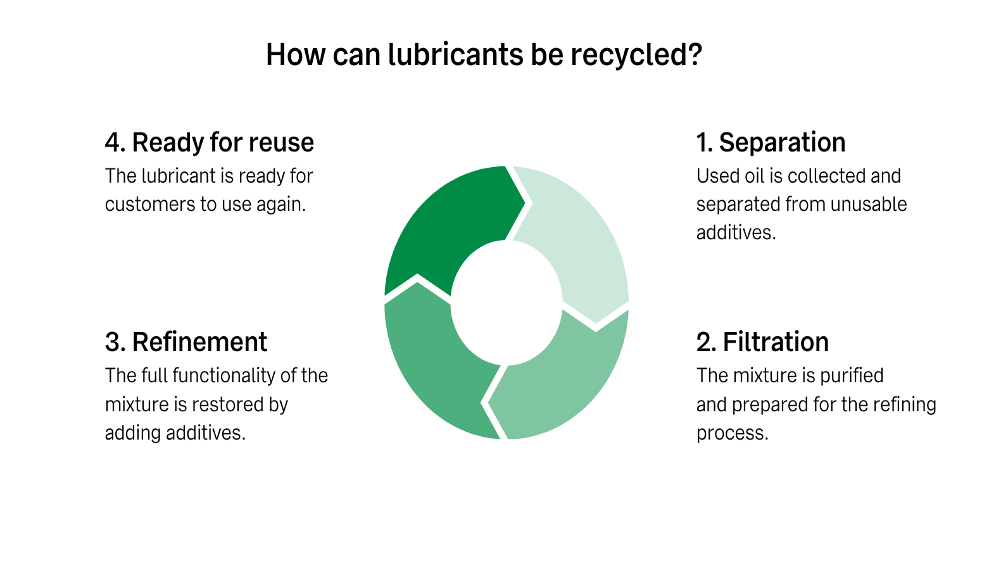
Waste Oil as a Recycled Product?
Can You Reduce CO2 Emissions with Waste Oil?
Lubricants keep our machines running and ensure that the gearbox, engine and hydraulics do not come to a standstill. After a certain time, it is advisable to replace the lubricant in the machines. What remains is waste oil. But this can be turned back into a high-performance lubricant.
What happens to the used oil?
For many, it is primarily a dirty waste material that needs to be banned as quickly as possible. Yet lubricants are an often overlooked lever for companies to reduce their CO2 footprint. Instead of burning the waste oil produced in workshops, new, high-performance lubricants can be created from it in the chemical treatment process.
How does that reduce CO2?
Compared to new oil, the production and use of recycled oil produces less CO2. Recycling the products already cuts CO2 emissions during the refining process. As no environmental pollution is caused by oil extraction and the oil does not have to be transported far by ship, further CO2 emissions can be avoided.
Companies can therefore reduce their own carbon footprint simply by choosing the right product, without having to compromise on performance or durability.
Up to 90% less CO2*
The lubricants from the new re:source product line from TECTROL, a brand of BayWa AG and AGRAVIS Raiffeisen AG, reduce CO2 emissions by up to 90%*. No one has to compromise on performance or durability.
The waste oil produced in BayWa AG's workshops is already being recycled in many places instead of burning the valuable raw material. This also applies to a large number of our customer workshops. The logistics for the removal of waste oil is also part of the BayWa portfolio.
* LCA (ifeu 2022) based on ISO 14040/44, DEKRA certified

